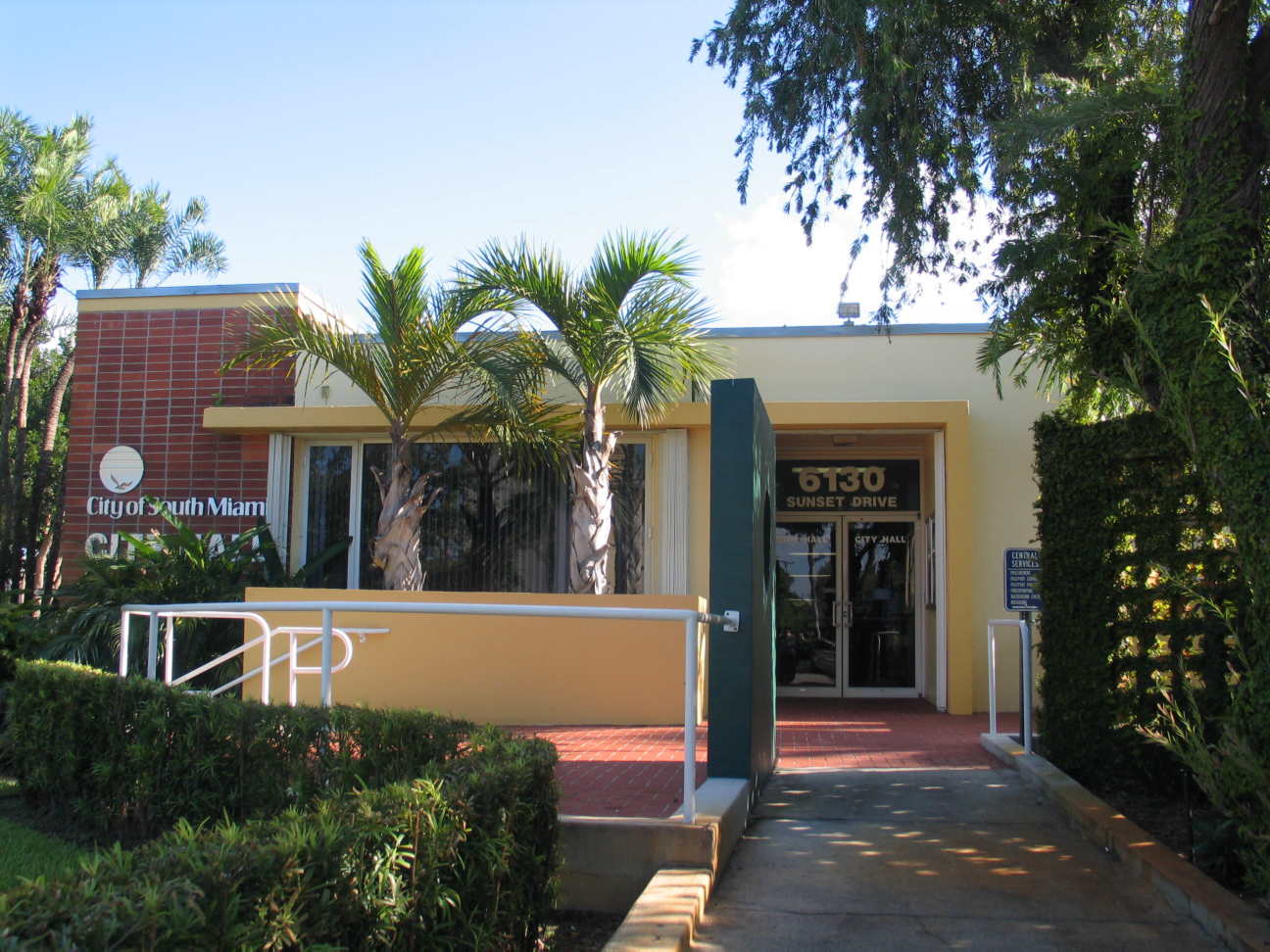In South Miami, voters are not only casting ballots for next week’s Republican presidential primary, which is already decided anyway. They will also be voting March 19 on whether or not to amend the city charter so that the city-owned property where City Hall is can be leased for more than 50 years. Today, the city can only lease its land for a maximum 50-year term.
This is connected to the redevelopment of the City Hall plaza at 6130 Sunset Drive — a 3.5-acre parcel that includes the police department and the Sylva Martin building, which houses the building and zoning department. And it’s only connected to City Hall, proponents say.
But a no vote won’t necessarily stop that.
The redevelopment of the outdated City Hall has been recommended since 2015 and given a green light in a non-binding question by voters in 2016. At one point, there was talk about an 8-story, $185 million mixed use project with an assisted living facility with 150 beds and 312 market-rate apartments, 7,500 square feet of retail and a 725-space parking garage. That project never saw the light of day.
A request for qualifications on a new project has been released and submissions are due by March 25, less than a week after the election. All this ballot question does is allow specifications to include a potential longer lease in the request for proposals, which is expected to go out in May.
Proponents have said it is necessary in order to get a good project.
Count South Miami Mayor Javier Fernandez, a lobbyist for developers, among those pushing the yes vote. He has used his political action committee to send at least two mailers promoting the amendment. We won’t know who paid for them until mid April, way after the election, when the next campaign finance reports are due.
Fernandez has even gone to the point of personally answering and debating the issue on the NextDoor app, where some residents have expressed concern or confusion.
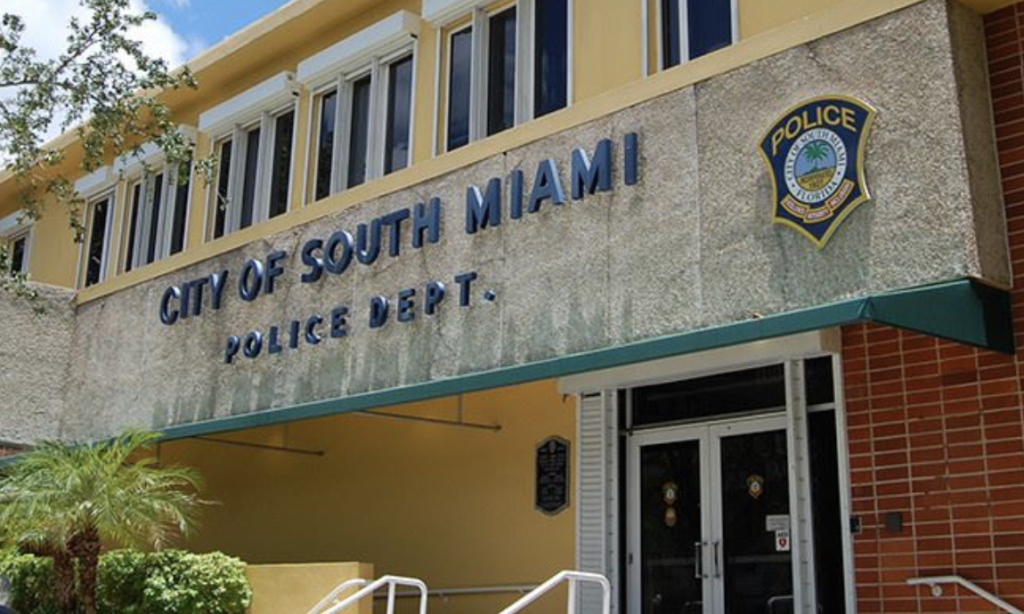
The mayor says that he can take a position individually, while the city cannot. But that’s not the vibe you get from reading the South Miami website. From the FAQs page on the amendment:
Q. What is the purpose of the proposed Charter amendment?
A. To extend the potential lease term of the City Hall property for a development partner chosen by the City through a competitive solicitation process. If adopted, the proposed Charter amendment would allow the long-term lease of the City Hall property to a development partner tenant who could redevelop it with a mix of uses in order to provide new facilities including a City Hall complex, Police Station, and potentially a library. The Charter amendment would allow the City to incentivize redevelopment of the City Hall property by offering a lease for a term greater than 50 years required by equity and lending institutions looking to finance and secure their investment.
“Q. If the Charter Amendment passes, what would that that enable the City to do?
“The City would competitively solicit a development partner tenant and enter into a lease agreement and the revenue generated would result in a mixed-use development that brings updated public spaces, activity, jobs, and economic development, as well as new municipal facilities that are better designed, more efficient, and more sustainable.”
“Q. What is the impact of leaving the 50-year limitation on leases of City property?
“A. Leases of less than 50 years limit the development and financing options for potential development partners who may have difficulty amortizing the cost of municipal improvements over 50 years or less, thereby reducing the pool of potential bidders and potentially the revenue and/or improvements that the City would obtain from the development partner.
“Q. Does this cost the residents of South Miami any tax dollars?
“A. The purpose of raising the 50-year limitation of the City Hall property is to have the opportunity of a private public partnership, this will allow the City to lease and monetize the real estate and allow the public partner to develop the City’s needs in exchange for a project that will also bring revenue to the partner. In most cases, bringing revenue to the City that allows for improvements, projects, and enhancements throughout the City at no expense to the taxpayers.
Sounds like a pitch to Ladra. What’s not to like? Where do we sign?
A question that wasn’t on the FAQs: Why is this on a March ballot where there is barely a Republican primary and no reason whatsoever for Democrats to come out at all, promising a very low turnout? As of Tuesday, a week before ballots are counted, the elections department had received 680 absentee or mail-in ballots back, less than half the 1,508 that were sent to voters, and 46 people had availed themselves of early voting, according to Miami-Dade Elections spokesman Roberto Rodriguez. South Miami has 7,491 registered votes, he said.
Fernandez told Ladra that he has other questions he wants to put on the ballots in August and in the general election in November, to borrow for debt issues and to catch up with maintenance on capital needs that have been ignored for decades.
“All these things are hard to communicate at the same time so I broke them up,” the mayor said.
Read related: Smaller Ponce Park Residences project comes to Coral Gables Commission
There is no organized campaign for the no vote, just a soft pushback from a few longtime residents who love the nostalgic look of the old City Hall and worry that the city is giving too much to developers already, what with increased density at the vacancy-plagued Shops at Sunset Place — commissioners unanimously approved zoning ordinances in November that allow the developer to build up to 33 stories along the portion of the property fronting U.S. 1, up from 12 that were allowed — and the Winn Dixie property, which will be replaced with a 9-story mixed-use apartment building with 293 units and a 400-space parking garage with a ground floor of retail, including a grocery store.
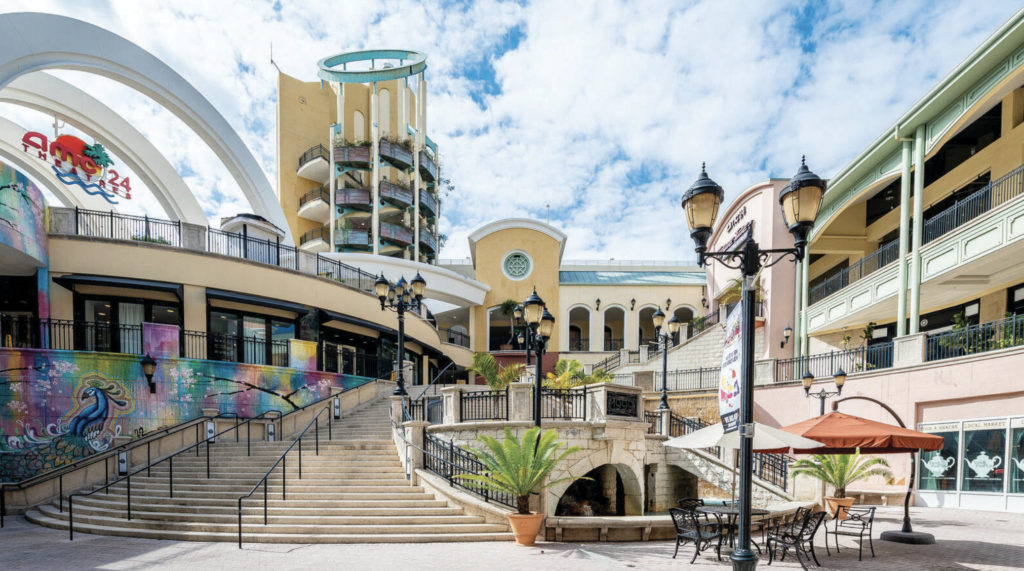
Residents have shared their worries on the Neighbors app and social media. But few of them showed up to a town hall last week about the charter amendment. And some of those said their fears had subsided with the clarifications made.
“The question is a very narrow question, specifically for this location and this development,” City Manager Chip Iglesias, who added that longer leases by municipalities are not uncommon, told the small crowd. “It would not apply to other properties.”
Maybe that’s why there isn’t more of an uproar.
Fernandez told Political Cortadito that it gives the city more flexibility in how to redevelop not only City Hall but the police department, which was estimated in 2022 to be a $26 million project all by itself. “Our options right now are really limited,” he said.
“We can raise money through a bond to pay for a new City Hall, police department, library and keep it a civic campus,” the mayor said. “And we have the option to sell.
“I’m just not a big believer of selling public assets,” Fernandez said.
Two previous and unsolicited proposals in 2017 and 2019 to redevelop City Hall were discarded because they would have included selling the property and the city becoming a tenant of the new owner. At one point, there was talk about an 8-story, $185 million mixed use project with an assisted living facility with 150 beds and 312 market-rate apartments, 7,500 square feet of retail and a 725-space parking garage.
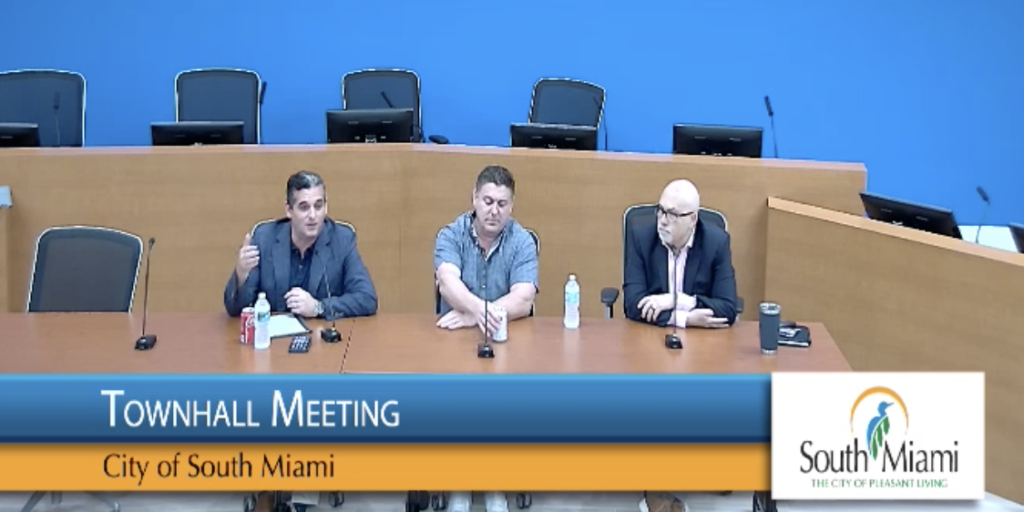
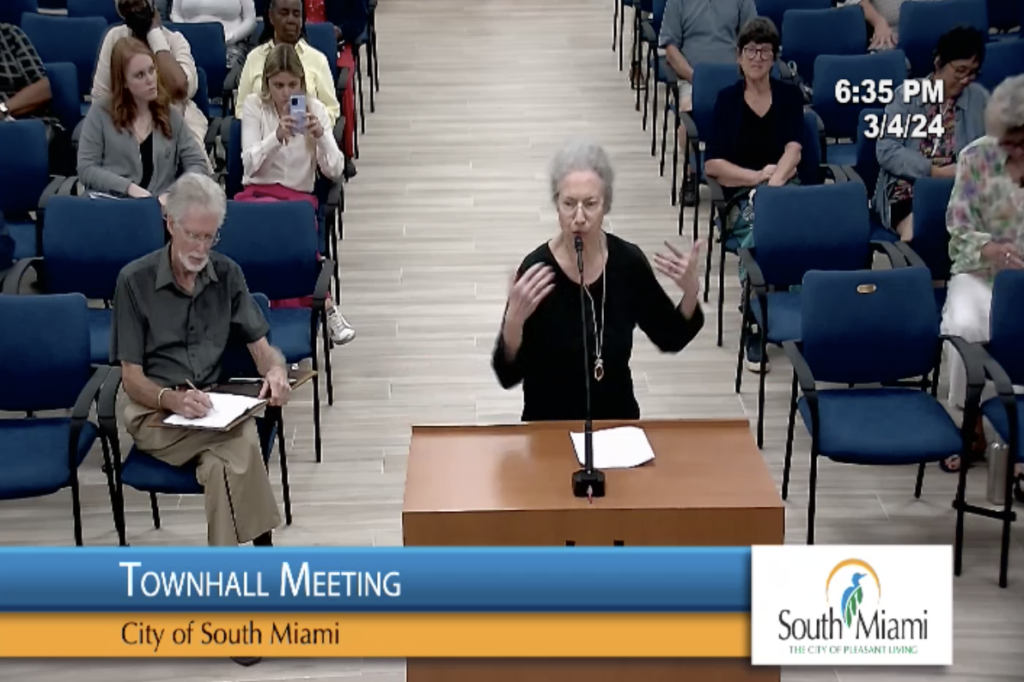
Isn’t there a third option? A short-term lease?
“With a shorter term lease, we are going to get marketably worse economics,” Fernandez said at the town hall. “A longer-term lease allows the tenant on our property… we are going to own the asset… but giving folks more time to amortize their investment, which will also increase the return.”
Read related: South Miami has new mayor Javier Fernandez and 2 new council mmbers
Fernandez said the redevelopment will also provide an opportunity to modernize the library and that the county is on board. He also says there is an opportunity to create a connection between City Hall and The Underline nearby and activating more green space on the campus.
According to the 2015 “green task force” report, the conditions at City Hall are deplorable. There are leaks requiring constant repair, antiquated office space and moldy conditions “creating health issues that are affecting the staff’s work.” That was nine years ago. Repairs have been piecemeal.
Also, City Hall was deemed not ADA accessible as required by law for people with disabilities.
In 2016, a whopping 72% of South Miami voters approved a non-binding ballot question about selling or redeveloping the City Hall site. The question on the ballot was: “Should the City use the value of the existing Library and/or City Hall and Police Station property to fully fund, at no cost to the taxpayer, the construction of an environmentally sound and more efficient City Hall, Police Station and/or Library and other possible improvements to the City, such as sewer connection for residences in low-lying neighborhoods currently on septic tanks, park improvements or tax reduction?”
Hell to the yeah. Who wouldn’t say yes to that?
The current ballot question is: “The city charter currently provides that leases of city property are franchises subject to a 50-year term limitation. Shall the charter be amended to authorize leases exceeding 50 years for city property involving the redevelopment of City Hall?”

